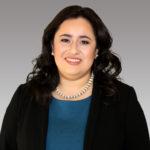
BANKRUPTCY LAW: CHAPTER 7
Chapter 7: The Most Common Form of Personal Bankruptcy
When people think of bankruptcy, they typically think of Chapter 7. This is the type of bankruptcy that leads to the complete discharge of the vast majority of debts. In exchange, non-exempt assets are surrendered to pay debts. However, under the Virginia bankruptcy exemptions, most people are able to keep their homes, furnishings, cars, retirement accounts and all other personal possessions.
Over the course of more than 30 years, we have helped hundreds of people overcome debt by filing Chapter 7. We will take great care in reviewing your case and determining if this is the right option for you. We serve clients throughout Washington D.C., Maryland and Northern Virginia, including Alexandria and Fairfax.
Chapter 7 bankruptcy is not the only option. Depending on your situation, Chapter 13 may be a more effective method of relieving your debts.
What Debts Does Chapter 7 Discharge?
Chapter 7 is an effective tool against the vast majority of unsecured debts. Unsecured debts are those that are not attached to collateral. They include credit card debt and medical debt. Although it may not eliminate secured debts, including mortgages and car loans, many people find that they are able to manage these debts after the elimination of unsecured debts.
The Immediate Impact of Filing Chapter 7
An automatic stay will go into place as soon as you file Chapter 7. It will effectively stop all creditor actions against you. It will stop creditor harassment and foreclosure. Even if home foreclosure or repossession is imminent, you can benefit from the automatic stay. This relief alone is a valuable part of the bankruptcy process.
Connect
When you’re ready to call, we’re ready to help. Call us at 703-836-9030, or contact us here.
Bankruptcy Law Attorney
Practice Areas


